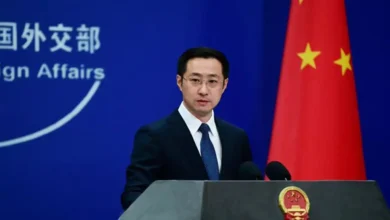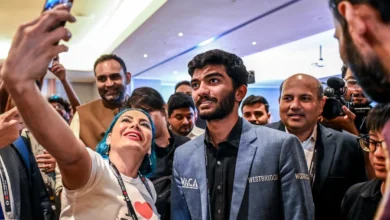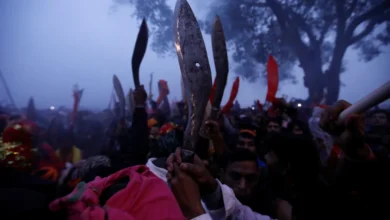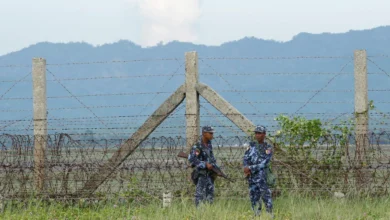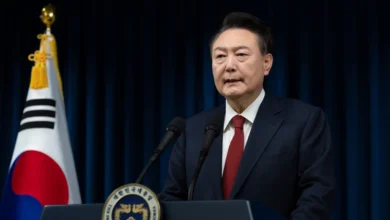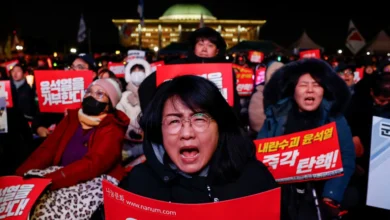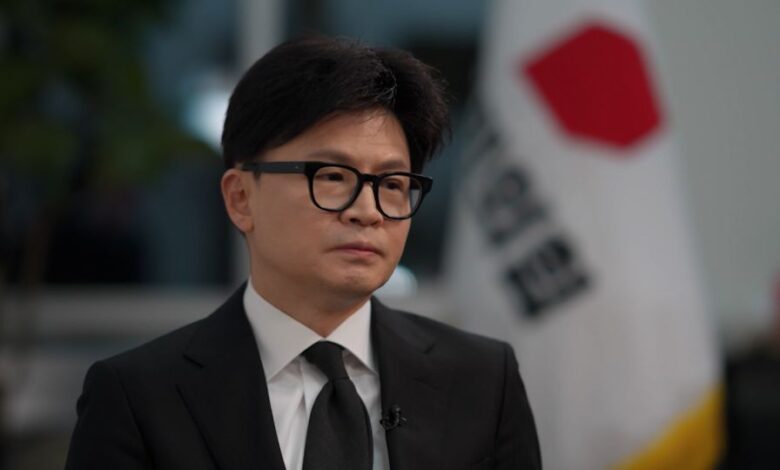
NexNews — In a dramatic reversal, Han Dong-hoon, the leader of South Korea’s ruling People Power Party, has called for the immediate suspension of President Yoon Suk Yeol’s powers to protect the nation from “grave danger.” This shift in position comes after Han received “credible evidence” suggesting that Yoon had ordered the arrest of key politicians during a brief martial law decree issued late Tuesday night.
Han’s comments represent a significant change in stance, as he had previously opposed impeachment efforts, citing concerns over potential unrest and instability. However, following the martial law order—which lasted only a few hours before being overturned by lawmakers—Han stated, “If President Yoon continues to hold the presidency, there is a significant risk that extreme actions like this martial law declaration could be repeated, putting South Korea and its citizens in grave danger.”
The martial law decree, which was met with widespread shock and anger, fueled calls for Yoon’s impeachment from both protesters and opposition figures. Despite initial support for Yoon’s leadership, Han’s comments now indicate growing dissatisfaction within the ruling party, signaling a potential shift in support ahead of the impeachment vote.
In a subsequent statement, Jehua Ryu, deputy director of the People Power Party Strategy Planning Headquarters, clarified that Han was not directly calling for Yoon’s impeachment. Instead, Ryu explained that Han was advocating for the suspension of the president’s powers, suggesting that there are alternative ways to curtail Yoon’s authority without going through the impeachment process.
Han had previously expressed concern over the instability that an impeachment could cause, but his recent remarks reflect increasing unease within his own party about Yoon’s leadership. Han, who was not informed about the martial law decree before it was enacted, described his reaction as one of shock and alarm. He quickly mobilized party members and lawmakers to ensure the decree was overturned in Parliament, where the motion to revoke the martial law order passed unanimously.
The martial law declaration carried significant historical weight in South Korea, a nation that has fought hard to build a robust democracy after decades of military dictatorships. Han emphasized that the quick resolution of the martial law issue highlighted the strength and maturity of South Korea’s democracy, noting that the crisis was handled through democratic means and solidarity.
With impeachment proceedings looming, Yoon faces growing pressure to resign, as a motion to impeach the president is set to be debated in the National Assembly. Under South Korea’s constitution, an impeachment motion must be approved by two-thirds of the 300-member legislature to proceed to the Constitutional Court. With opposition parties holding 192 seats, they would need at least eight members from the ruling party to support the motion for it to pass.
As the country awaits the outcome of the vote, the future of President Yoon’s administration remains uncertain.
